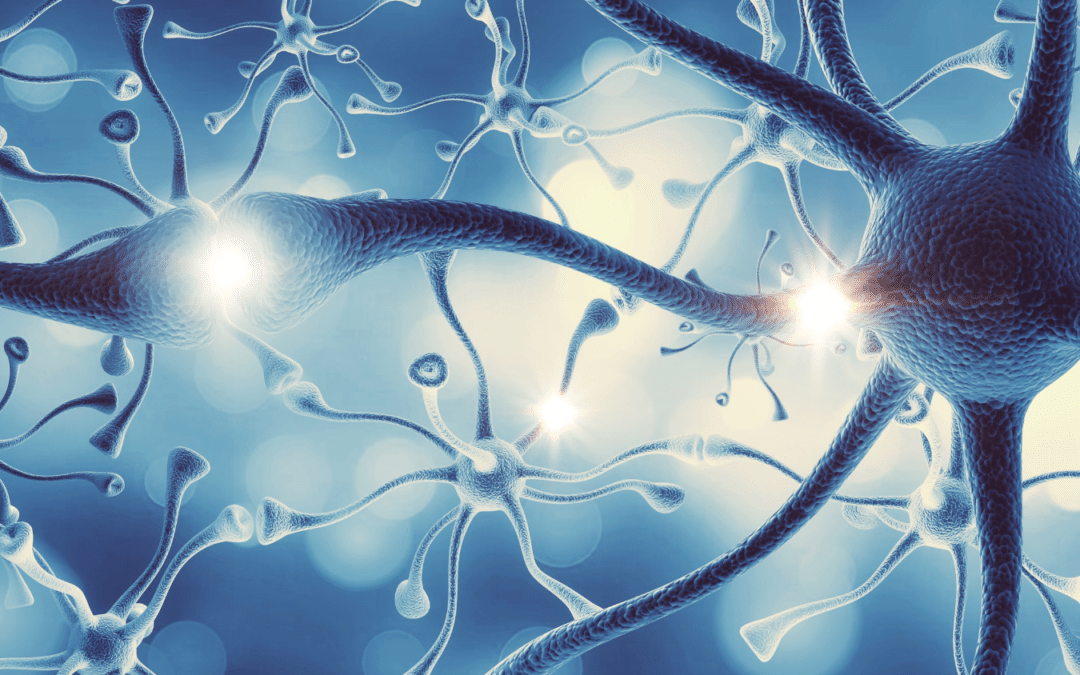Digestive enzymes are a type of protein that helps the body break down the food we eat into smaller particles. Carbohydrates, fats and proteins are large and complex molecules that rely on specialized digestive enzymes to break down food so that the nutrients can be absorbed and utilized by the body.
One group of digestive enzymes are called proteases (or peptidases). These break down proteins. Another group breaks down fats and is called lipases. Furthermore, there is a third group of enzymes that break down carbohydrates, an example being amylase. Within these three groups of enzymes, there are several different enzymes that complement each other during the digestive process and are active in the different pH environments in the stomach and intestines (1).
Digestive enzymes and food digestion
The digestion process begins in the mouth, where amylase is released in the saliva. Chewing food properly is therefore an important contribution to the digestion process, both by activating the enzymes naturally present in the food and by increasing the secretion of saliva containing enzymes. In the stomach, the digestive process continues. In the lower part of the stomach, gastric acid is added which, among other things, activates protein-degrading enzymes (2). In the duodenum, most of the digestion takes place through the supply of bicarbonate, bile and enzymes from the pancreas. A well-functioning pancreas is therefore central to the digestion of nutrients such as fats, carbohydrates and proteins (3). Now, all three enzyme types proteases, lipases and amylases are active in the high pH of the duodenum. In the small intestine, new enzymes are added that carry out the final phase of digestion so that the food's nutrients can pass through the intestinal wall and then be absorbed into the bloodstream for further utilization by various bodily functions and processes.
Low production and activity of digestive enzymes
Many people have some form of indigestion and problems in the stomach and intestines, so that the important digestive processes do not function properly. This can lead to low production or low activity in the digestive enzymes. This can be caused by various diseases of the stomach and intestines where enzyme production is reduced. For example, if you have pancreatitis or parts of the pancreas and/or gallbladder have been removed, or if you have low stomach acid production. In addition, the production and activity of digestive enzymes decreases with age.
It is also the case that when food is heat-treated at temperatures above about 50°C, the natural enzymes in the food are inactivated. This means that if you eat little raw, enzyme-rich food, the body has to rely on its own digestive enzymes. If this production is already low, it can lead to various problems.
Common signs of low production and activity of digestive enzymes include (4-6):
- Bloating and flatulence
- Abdominal pain and cramps
- Hard stomach or diarrhea
- Undigested food in the stool
- Foul-smelling stools
- Malnutrition and weight loss even with frequent food intake
In cases where you experience such problems and eat little raw food, a daily supply of active digestive enzymes can help improve digestion.
Dietary supplements with active digestive enzymes for better gut health
SHIFT™ Zym is a dietary supplement containing 10 different digestive enzymes that help break down and digest proteins, carbohydrates and fats from the food we eat. By adding digestive enzymes in conjunction with the main meals of the day, various digestive problems can be reduced.
It is recommended to take 1 to 2 capsules of SHIFT™ Zym with each main meal of the day. The need may vary for each individual. We recommend trial and error to find the right dosage. The product can be used in conjunction with other gastrointestinal products, but it is recommended that you consult your doctor if you are taking medication.
The product is in capsule form and should preferably be swallowed whole. If you have difficulty swallowing the capsules, you can open them and add the powder content to a glass of juice or water and then consume it.
If low self-production of digestive enzymes and low intake of raw food are identified, it may be beneficial to use SHIFT™ Zym daily.
- https://nhi.no/animasjoner/magetarm/enzymer/
- https://www.sciencelearn.org.nz/resources/1840-digestive-enzymes
- https://pubmed.ncbi.nlm.nih.gov/17205399/
- https://www.healthline.com/health/exocrine-pancreatic-insufficiency/the-role-of-digestive-enzymes-in-gi-disorders#who-needs-digestive-enzymes
- https://prod-test.cff.org/Life-With-CF/Daily-Life/Fitness-and-Nutrition/Nutrition/Taking-Care-of-Your-Digestive-System/Enzymes/
- https://www.hopkinsmedicine.org/health/wellness-and-prevention/digestive-enzymes-and-digestive-enzyme-supplements










